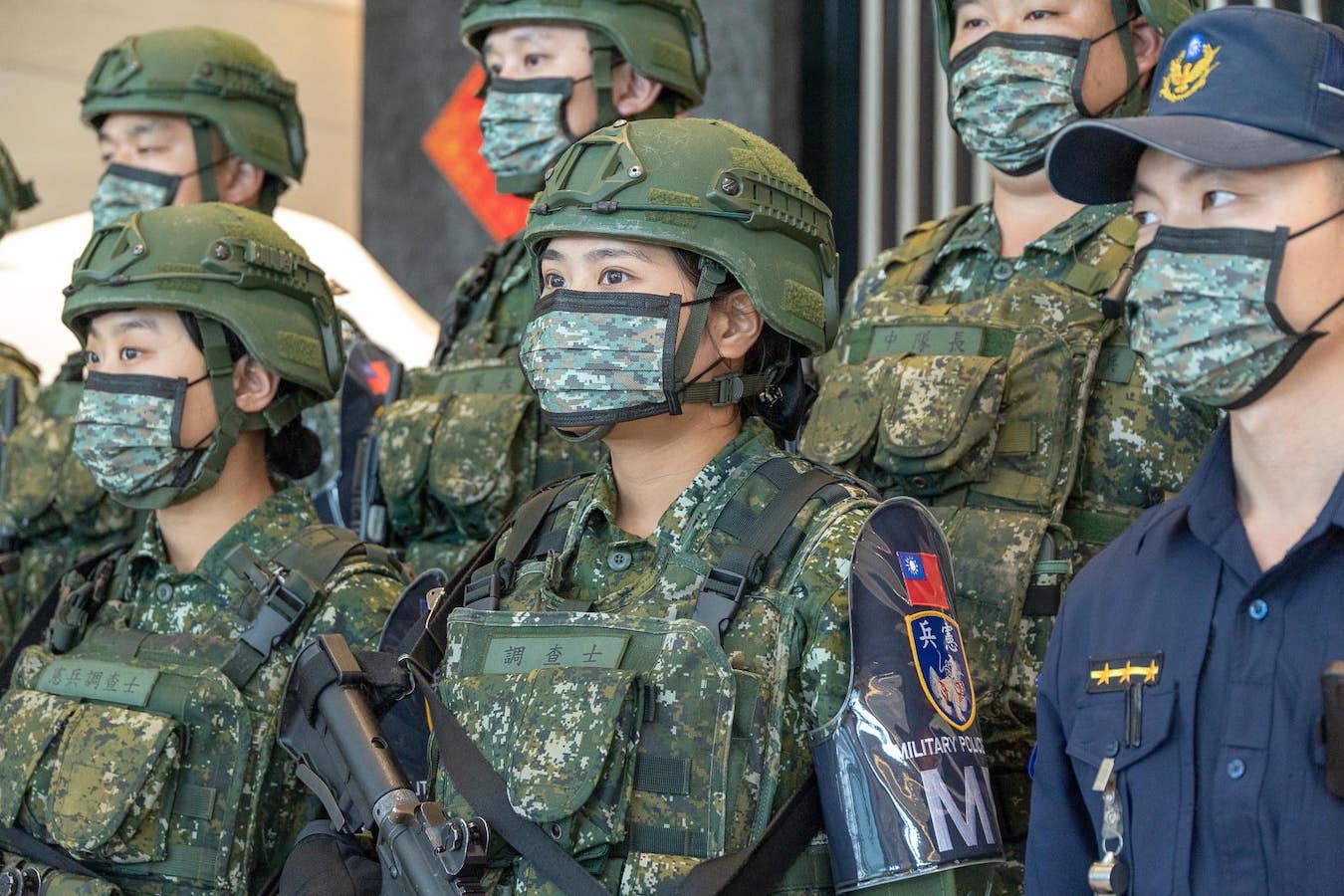by Brian Hioe
語言:
English
Photo Credit: Tsai Ing-wen/Facebook
A CONTROVERSY IN July involving the strength of the bulletproof armor that the ROC military uses proves instructive with regards to the dynamics of political controversy in Taiwan. To this extent, the case is instructive about the dynamics of interactions between Taiwan’s civilian government, voices from the public, and the military.
In particular, the present controversy occurred after US-based Taiwanese YouTuber Uncle Sam Gun & Fun alleged that the military-grade bulletproof vests used by the military had been penetrated by rounds similar to those of Chinese weaponry when he tested them at a shooting range in the US. The YouTuber stated that his hopes in demonstrating this with a YouTube video was so that the military could be pushed to improve, so that the true test of the weakness of body armor and bulletproof vests issued to the Taiwanese military was not on the battlefield in such a manner that resulted in young casualties.
The military’s response was that the YouTuber had improperly tested the bulletproof vests, failing to use the right rounds, and not using them with inserts or using them incorrectly. Otherwise the military stressed that the bulletproof vests had passed testing in both Taiwan and the US, having met NIJ Level III ballistic capabilities in accordance with NIJ Standard 0101.04 at Chesapeake Testing in Riverside, Maryland. These tests are administered by the National Institute of Justice, which is part of the US Department of Justice. The military later conducted tests to further emphasize its point.
Further controversy has centered around the origin of the military-grade bulletproof vests obtained by Uncle Sam Gun & Fun. Initially, the YouTuber suggested that the vests had originated from DPP New Taipei city councilor Lin Ping-yu, and were manufactured by the 205th arsenal. However, later on, Uncle Sam Gun & Fun did not elaborate as to where the plates came from.
 Photo credit: Tsai Ing-wen/Facebook
Photo credit: Tsai Ing-wen/Facebook
Namely, the military stated that it will investigate and hold responsible those provided the plates. This statement has been, however, honed in on by pan-Blue media to suggest that the Taiwanese military was threatening retaliation against whistleblowers.
This would be with the aim of politically attacking the Tsai administration by suggesting that it takes action against whistleblowers that point out shortcomings in the military. The notion would be to undercut the Tsai administration’s efforts at reforming the military, including re-extending the draft, and seeking to bolster efforts to strengthen ties with potential allies in the event of a Chinese invasion.
The pan-Blue camp has traditionally been supported by military veterans. Nevertheless, the present is a time in which the pan-Blue camp has abandoned its traditional stances and instead increasingly has sought to cast doubt on the reliability of traditional allies such as the US.
Instead, the pan-Blue camp seeks to depict the Tsai administration as provoking China by strengthening ties with the US and other western powers, such as resulted in the need to re-extend the draft. It may not be surprising, then, that KMT presidential candidate Hou You-yi has suggested scrapping the Tsai administration’s draft re-extension and instead lowering the draft back to four months.
As such, though the pan-Blue camp would have historically been more cautious of embracing a political narrative that depicts the ROC military in a negative light, this is no longer the case. In particular, pan-Blue media is increasingly prone to circulating disinformation, as in recent allegations that the US requested Taiwan to engage in the development of bioweapons published by the United Daily News.
In this case, the matter at hand is regarding the framing of actual statements by the military stating that there would be consequences for those that gave military equipment to private citizens, rather than disinformation, per se. Nevertheless, one notes that this, too, reflects how the military has generally reacted with hostility to civilian attempts to provide oversight over the military. There has been a less than friendly response from the military to civilian-led civic defense efforts, for example, with the military taking the view that civilians should leave Taiwan’s defense to professionals.
Consequently, even if the pan-Blue media has likely seized upon this case in order to depict the Tsai administration in a negative light, the military’s handling of PR fallout is not likely to reassure civilians about the military either.

